The woman teaching Afro-Scots to reclaim their natural hair
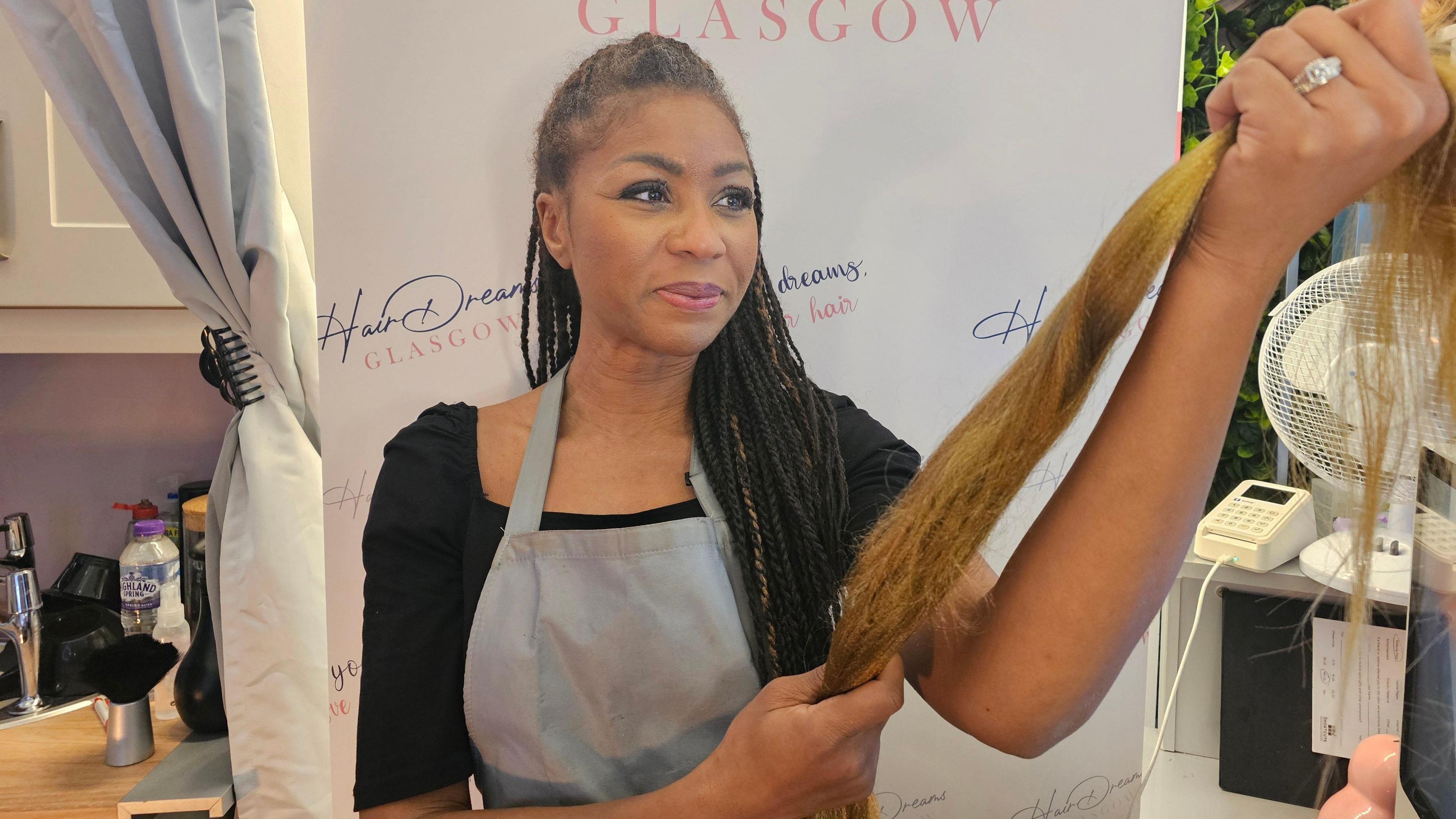
Ivy MacNeill opened HairDreams Glasgow in 2020
- Published
When Ivy MacNeill was a child getting her hair done was a painful and uncomfortable experience.
She says that in the 1980s there were no salons in Glasgow where a black girl could have her hair braided so it was mostly done by a family member - or sometimes behind the counter of the local African food store.
"There was no hair hygiene, privacy or professionalism," says Ivy, who was born in Nigeria and moved to Glasgow when she was four.
"You weren’t pampered like a professional salon would do."
African parents often get their daughters' hair braided as a form of protective hairstyling because it is so heavily textured.
The hair is tucked away in an attempt to allow it to grow healthy and free from breakage.
Protective hair styling can be in the form of braids, dreadlocks (Rastas) or wigs sewn in to the hair.
Ivy recalls having to stay home to get her hair braided at the weekend while all her friends were out playing.
''It was painful when other people did my hair but my mum was very gentle," she says.
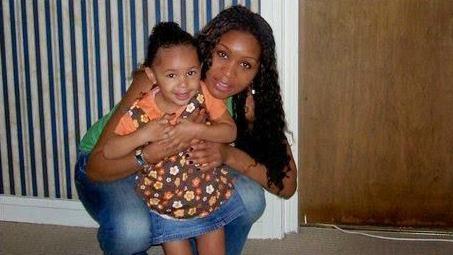
Ivy MacNeill and her daughter Erika
Years later when she had her own daughter, Ivy realised that Afro-Scots were still not getting the kind of specialist hair treatment she been travelling as far as London to receive.
''My daughter is mixed race so she has a lot of hair which can take hours to braid," Ivy says.
''Doing her hair and mine, with 40 hours a week at my IT job became stressful and frustrating."
Ivy decided she wanted her own salon specialising in protective hair styling.
She says she was always interested in hair but her parents hadn't seen hairdressing as a professional career.
In 2010, she was made redundant from her IT job and decided to retrain. It was a "blessing in disguise", she says.
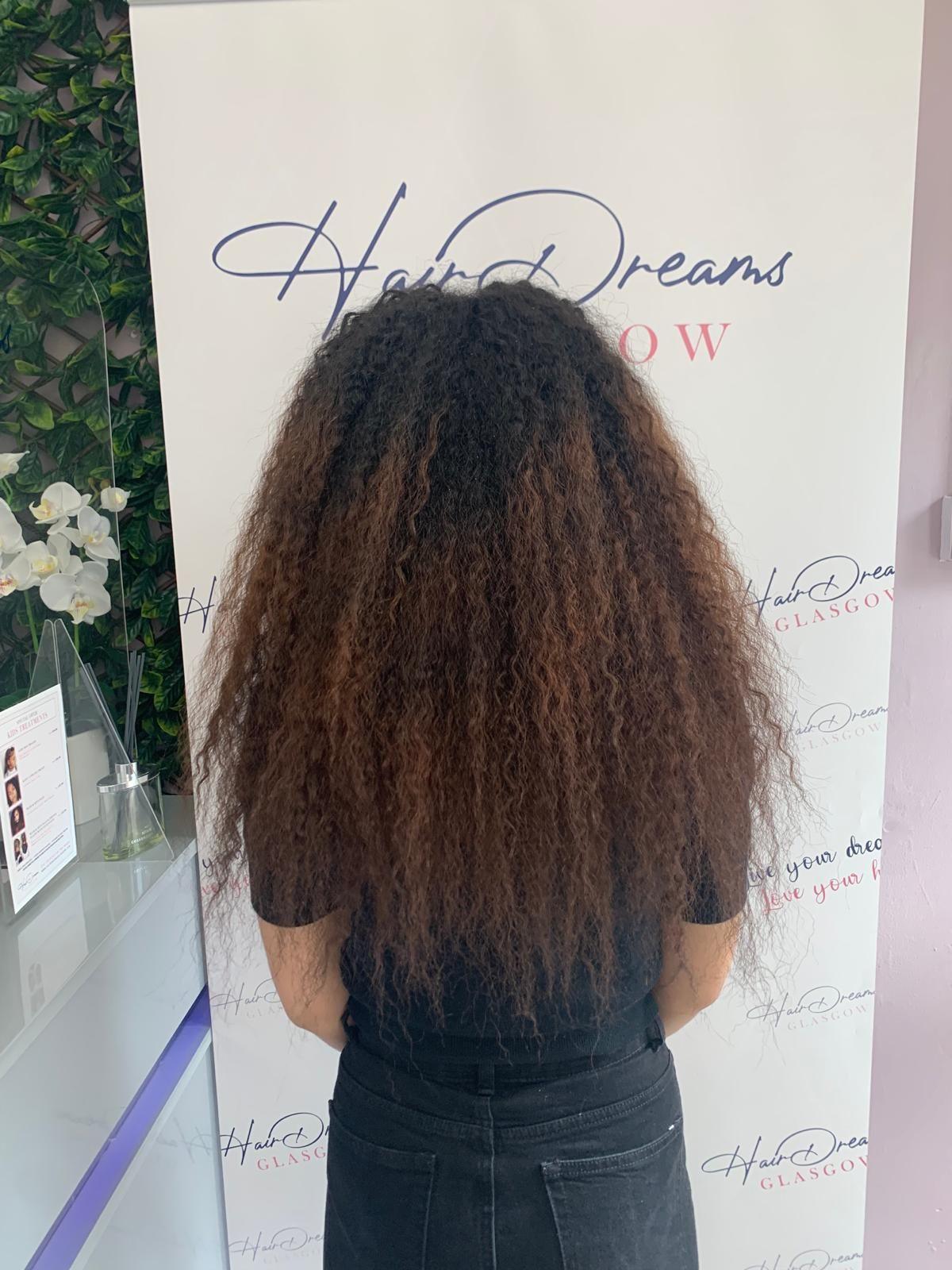
Erika had a lot of hair which took long hours to style.
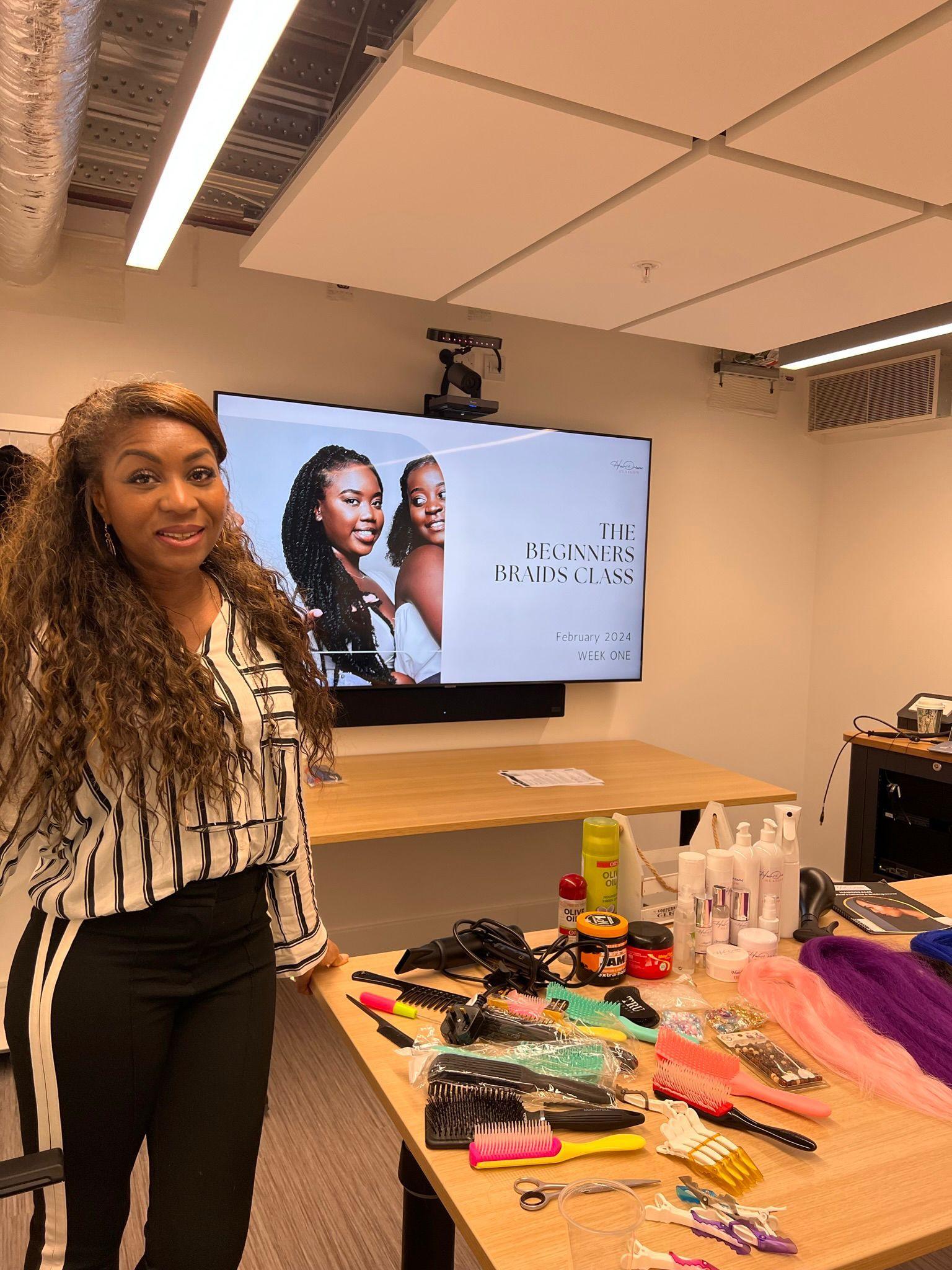
Ivy teaches volunteers at her skills training workshop in Glasgow
Her first obstacle was getting professional training on Afro hair.
''I was shocked to learn that no college in Scotland offered protective hair styling or a course on black hair," she says.
‘’This is why black hairdressers have this unique experience of hiring a hair stylist to work for them and when a black customer walks in, the stylist says 'I was never trained on this hair texture' or 'I am not confident working on that kind of hair'.
''You don’t just end up losing a customer but also making her feel discriminated against."
Ivy, who is now 43, found a course in England to teach her Afro hair skills but she also trained in European hair and worked in a Glasgow salon until she eventually opened HairDreams Glasgow in 2020 - a salon and social enterprise to train young black women on protective hair styling.
"I felt this was beyond just business," she says.
"I believe Afro hair treatments or Afrocentric hair solutions must be made accessible to the growing Afro-Scottish community."
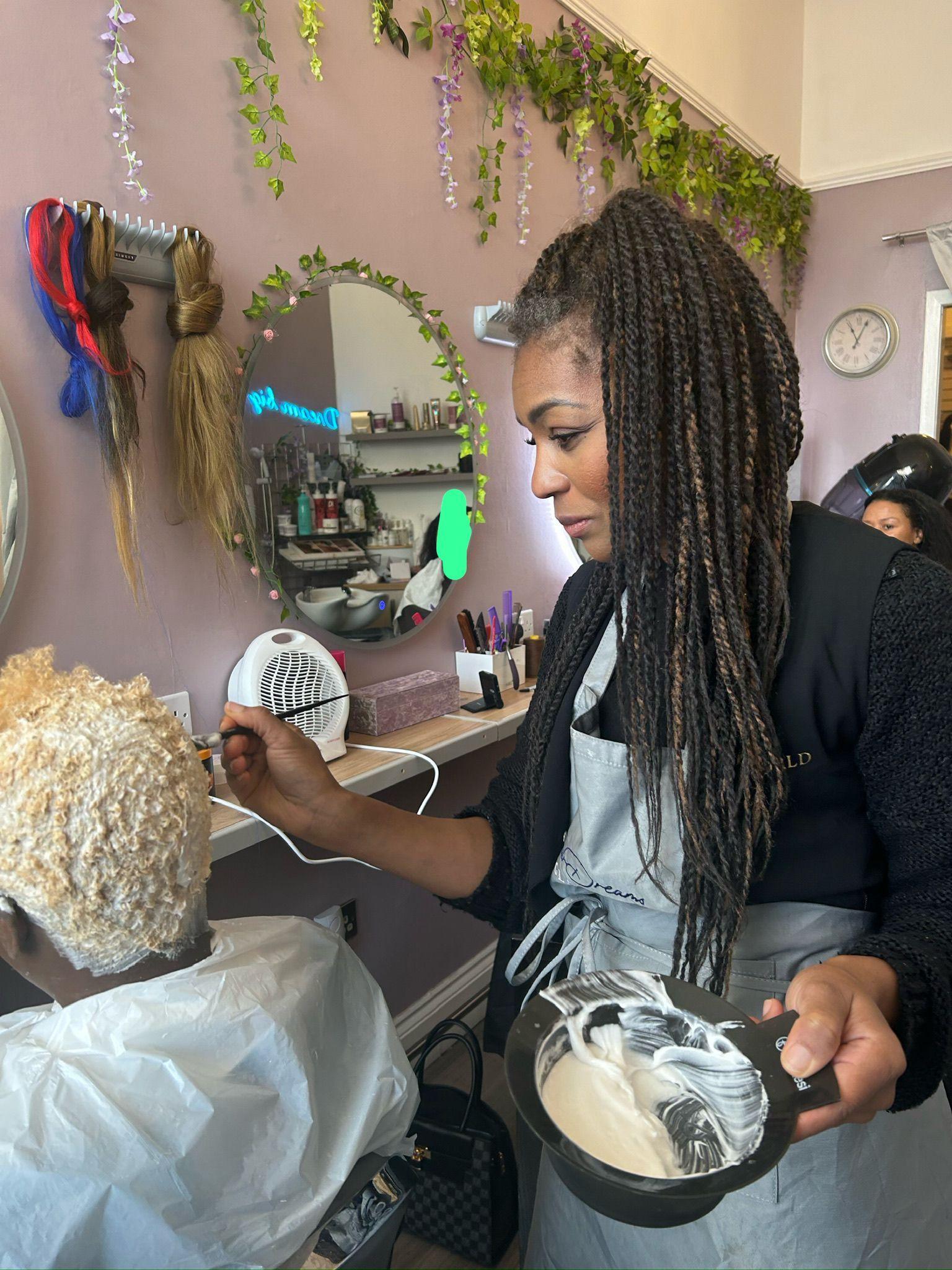
Ivy's is trained to style all types of hair textures
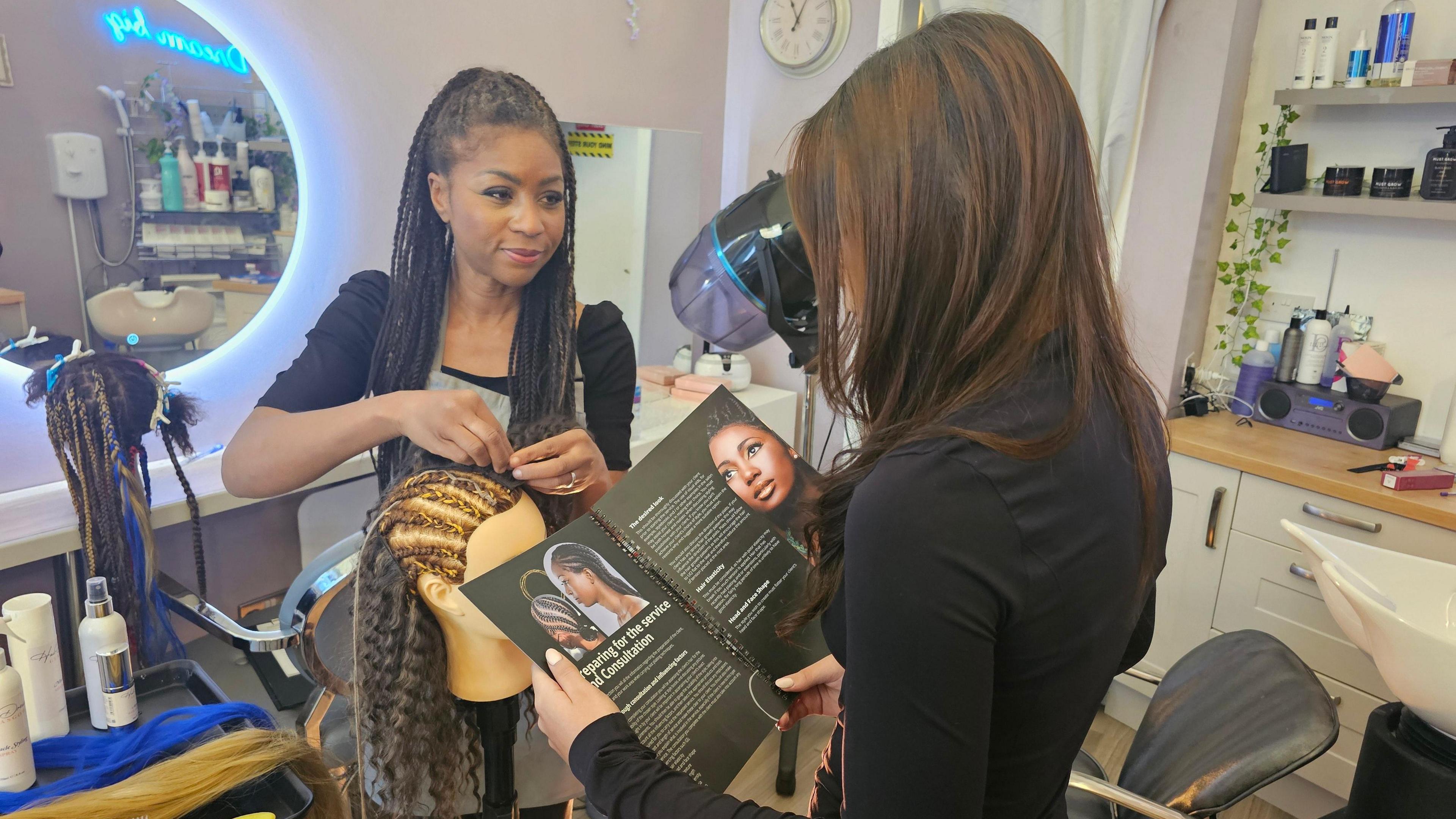
Ivy MacNeil helps her students build their clientele and entrepreneurial skills
The salon also has three community groups.
The Braidy Gang is for 16 to 25-year-olds who train on each other’s hair, while The Parent & Child Group allows parents to learn how to style and maintain a child’s hair.
The Ladies Group is where women learn how to maintain each other’s protective hair styling.
HairDreams also aims to train 25 young unemployed black girls for free this spring.
They will be taught different Afro hair styles in a 12 week boot-camp.
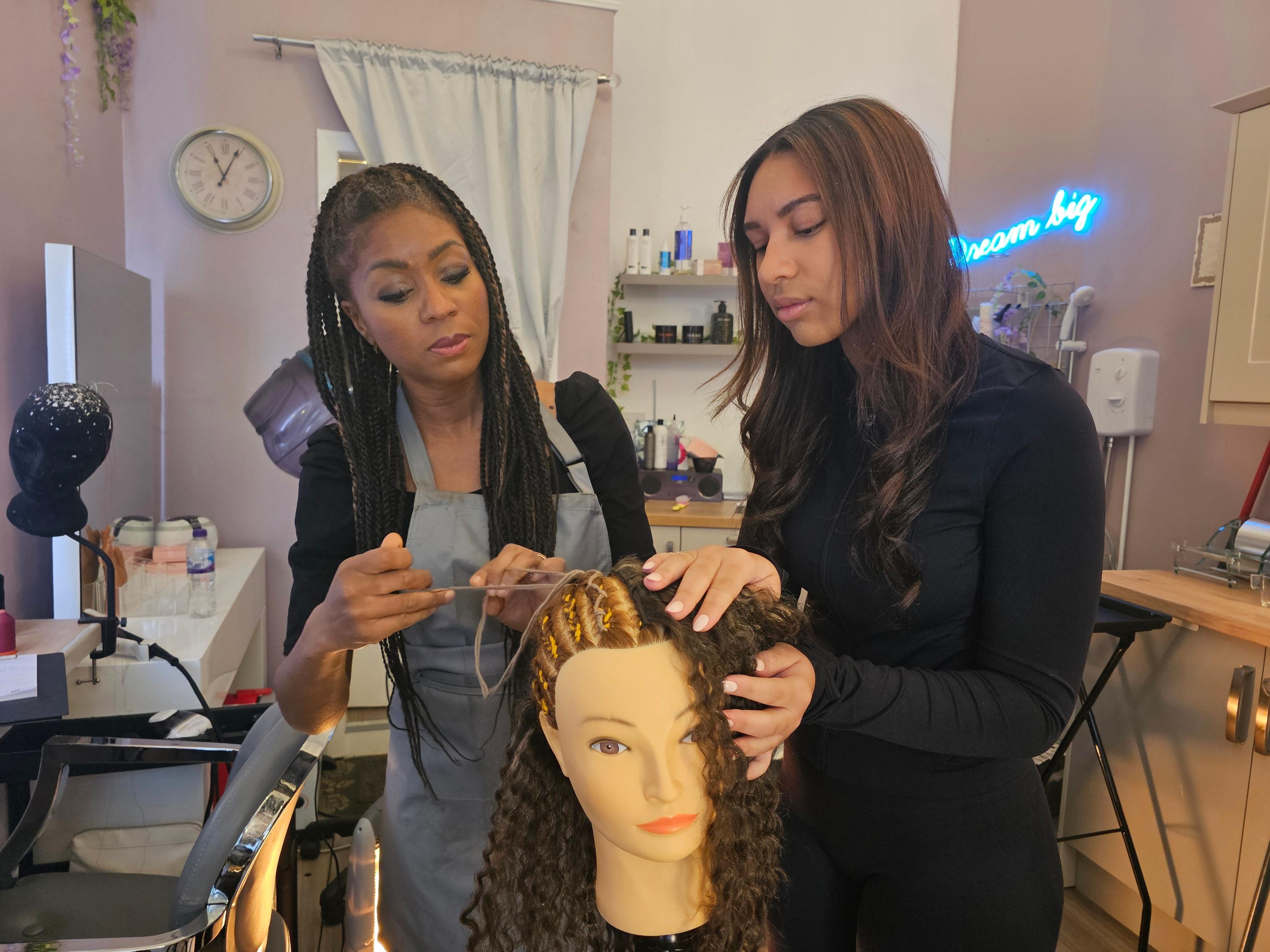
Ivy teaches her daughter Erika, now 18, on protective hair styling
‘’There is no one method for every Afro hair, everyone one has a style that works for them and is easier for them," Ivy says.
The boot-camp will also train the students on salon etiquette, floor management and business relations.
''A hairdresser is like a confidant, so we try to create that safe space where you can come in at your most vulnerable and leave at your best," she says.
"’For others, it’s the only place where you can interact with people who look like you, and others see it as a place where they can just relax and take the load off their heads while someone else do their hair.
"Afro hair skills have been so undervalued and it is time we change that narrative and professionalise it for mainstream consumption.
"We are reclaiming our natural hair texture as a source of pride and cultural identity.’’
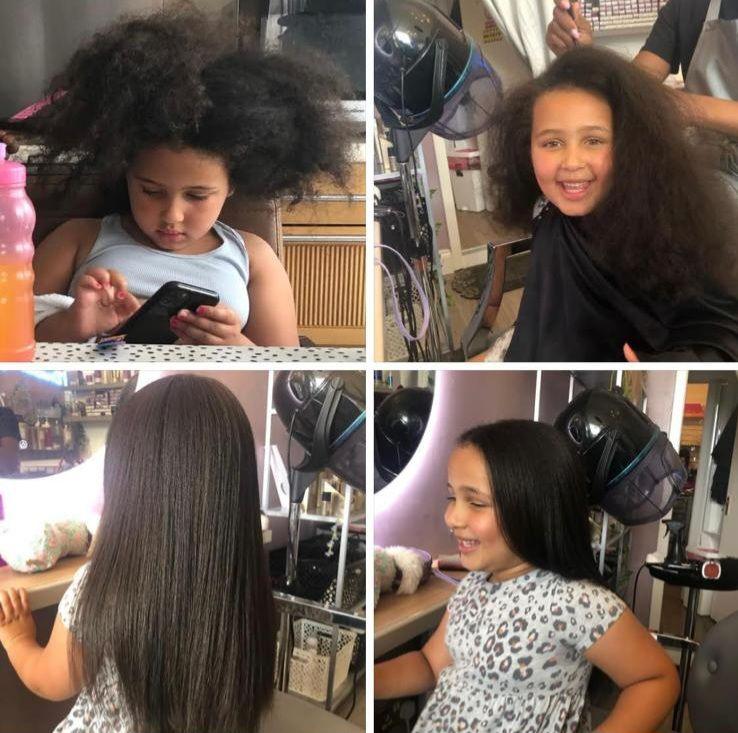
Ivy helps mothers with different hair techniques to take care of their children's hair